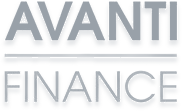Why Financial Institutions Need AML/CTF?
Financial institutions are a high-risk sector as they offer channels for financial transactions at multiple levels, from the local community credit unions to international banks. As a registered bank, trust company, brokerage firm or an investment dealer, you are a “regulated entity”, if you:
- are a company engaged in the business of financial and monetary transactions such as deposits, loans, investments, and currency exchange;
- are an investment service provider, a superannuation fund manager or provider.
Banks and other financial institutions create business partnerships with individuals or entities without information of their business dealings, sources of funds, the purpose of the transaction or invoicing of goods. This allows the proceeds of crime to be laundered through various methods, exposing financial institutions to risks of money laundering (ML). Transactions with sanctioned individuals or regimes may also expose financial entities to terrorism financing (TF), thus attracting hefty lawsuits and regulatory fines.
Compliance begins with mandatory client verification (KYC) and Screening for Sanctions/PEP/Adverse Media/Beneficial Ownership at the time of client onboarding, or establishment of a new business relationship. Financial entities are also required to monitor, track and report suspicious activities. This includes unusual transactions, market manipulations, tax evasions, transactions with virtual currency exchanges, trading in illicit goods, transactions with sanctioned entities or countries, transactions in a geographic territory experiencing political turmoil or terrorist activities.
The ability to use large amounts of cash for transactions and conceal the sources of funds or ownership, allow illicit funds to be laundered. The globalisation of the financial industry means earnings of financial crime in a foreign country can be integrated into the formal economy of another country. Terror activities can be funded through a series of layered transactions or fake invoicing methods. This makes financial entities highly vulnerable to AML/CTF compliance and liable to be penalised for non-compliance.
Banks, trust companies, brokerage or investment firms; are expected to establish the framework for a risk-based compliance program:
- Conduct a risk-based assessment for exposure by type of customer, countries of operation, business relationship, third-party involvement, size of transactions and industry (such as money remittance services, or cryptocurrency).
- Create risk reduction measures and controls to lessen risk.
- Develop an AML/CTF program: client identification, ongoing monitoring and reporting; as per the industry body guidelines.
- Implement the risk-based approach to ongoing monitoring of customers, transactions and business relationships. This includes de-risking business relationships to manage risks


Set up and maintain your compliance program, as per the laws of your regime. Non-compliance may result in criminal or administrative monetary penalties.
Ongoing compliance involves:
- Training staff, and appointing a digital ethics officer/compliance officer to oversee the compliance program.
- Conducting customer due diligence (CDD) when establishing a new business relationship or enhanced due diligence (EDD) when there is a material change in the relationship with the client.
- Ongoing transaction monitoring - filing Suspicious Activity Reports (SARs) for transactions that are suspicious, international, or involved with sanctioned countries.
- Capturing customer data across every touchpoint and maintaining the records.
- Reviewing your risk assessments and compliance programme periodically.
Our Solutions
Our PEP and sanctions screening service will help you reach your compliance requirements.
Our details scan reports provide you with an overview of in-depth information on potential risks to your organisation.
We provide access to multiple data sources to meet the varying requirements of users.
We update the information for all of our data sources daily to provide you with up-to-date relevant data.
Save the time manually checking names by using our batch scanning feature to scan bulk files of names simultaneously
Our service is straight-forward and easy use, making compliance easy by simplifying processes.
Perform due diligence by assigning risk, determining true matches and recording decisions in the NameScan dashboard.
Conduct further research into potential matches and risks to your organisation through various sources.
Use our API to integrate with your existing systems to automate the screening process.




































